The Best Basement Flooring Options
Basement flooring can be a tough nut to crack – do you need to have waterproof basement flooring? how much should it cost? will it look pretty?! – but you have more options than you think. We’ve got you covered with this list of the best basement flooring options. Now, the choice is up to you!
Unfortunately, a pipe just burst in your basement. The old basement carpet that has been down there for decades is totally ruined. But that may not actually be the worst news ever because you have been wanting to get rid of that outdated shag for years.
Maybe that pipe bursting is like Christmas morning! It’s time to get that new, updated basement flooring that is more modern with the times. Viola! This is the perfect opportunity to do some shopping for new flooring for your basement.
But…where to start?! How do you choose the best basement flooring?
There are many factors and some legwork to consider before you choose and install your new basement floor.
If your subfloor is uneven, for example, it will need to be leveled out before you begin installing a basement floor. Any cracks in the foundation will need to be filled in and moisture issues will need to be treated before you begin the installation.
When it comes to the best flooring for basement installation, you actually have a variety of options that work well. Really, the only floor that cannot be installed in the basement would be a hardwood floor – don’t let us break your heart there; we are truly saving you some heartache by telling you up front. Also, plenty of beautiful wood-look options will look just as sleek! You’re welcome!
Let’s run through a few of the more popular flooring options and some great basement flooring ideas.
Related content >> Flooring for Flood-Prone Areas
Vinyl Basement Flooring
You may not have realized some of the wood floor looks you’ve seen in supermarkets, coffee shops and retail stores are not actually hardwood. The truth is, the majority of them are vinyl planks. I know, I too have been fooled many times by this sneaky floor!
The main component of vinyl is a flexible type of plastic. This means that it has the same natural properties as other plastic, such as a high resistance to moisture, density and strength, and the fact that it does not grow mold or mildew.
Whether you decide to choose a vinyl tile or plank, vinyl really is among the best flooring for basement installation. Vinyl floors are nice for basements that serve as living rooms or if you’re converting your basement into an apartment.
Related content >> Vinyl Flooring Trends
Pros of Vinyl Flooring for Basements
- Floating floor type installation can be put down without the need for messy adhesives.
- There are even easy-to-install jigsaw puzzle type floor tiles. These can be easily removed and put back in place in the future if a flood does occur. These tiles also allow air to flow underneath them, giving the concrete subfloor space to breathe.
- Attractive and realistic stone looks.
- Vinyl is incredibly durable and comes in a variety of different wear layers so you can choose the right one for your needs
Related content >> Vinyl Plank Flooring Buying Guide
Cons of Vinyl Flooring for Basements
- There are concerns about safety regarding vinyl tiles and whether or not they are family safe. When choosing the right vinyl floor for your basement, be sure to consider a product that has been tested to prove its safety and comes from a reputable source.
- Since vinyl flooring is essentially water resistant, there really aren’t many cons for using vinyl flooring in a basement. I suppose that if you were to fall in love with a beautiful stone look or wood look plank that is out of your budget, that would be a con. Or, it would just mean you save up a little longer to get the floor of your dreams.
Even Better: Waterproof Vinyl Basement Flooring
Unfortunately, basements are prone to flooding. Anyone who has ever experienced water in the basement knows the dreaded feeling of each rain storm that comes through your town. The first pitter-patter of raindrops stops you in your tracks and makes you wonder if you need to start moving things in your basement.
That’s no way to live! A waterproof basement flooring will be your biggest defense, so you can enjoy rainy days with less anxiety.
If you’re going for a more traditional home look in your basement, WPC vinyl flooring is the way to go. We know what you are thinking – “what the heck is WPC?” Other than Wow Pretty Cool, there are a couple of legitimate meanings for the acronym WPC.
WPC can mean Wood Plastic Composite as well as Waterproof Core. The latter is easier to remember and important to our conversation.
As a popular wood flooring alternative, WPC vinyl gives you that rich, sought-after, expensive wood look. WPC vinyl plank flooring has it all – high-quality visuals, extreme durability, a range of beautiful colors/textures, and some even come with attached underlayment.
Related content >> Waterproof Vinyl Flooring Buying Guide
Pros of Waterproof Vinyl Flooring for Basements
Vinyl flooring is pretty much the Superman of the flooring industry. Here’s a quick look at just a few of the qualities that make it so awesome.
- Ultra-durable: WPC is known for being the best of the best, showcasing the thickest, most durable luxury vinyl with the thickest wear layers for optimal scratch protection.
- 100% waterproof: The ultimate basement flooring for flooding
- Perfect for imperfect subfloors. Little known fact: because waterproof vinyl plank flooring is so thick and durable, it can hide an imperfect subfloor. I know, I know, you don’t care what the subfloor looks like. But do you care about dropping a bunch of extra money leveling it beforehand? With waterproof luxury vinyl plank and tile flooring, oftentimes, you won’t have to.
- Low maintenance. All you need is the occasional vacuum and damp mop to keep your WPC looking fabulous.
Cons of Waterproof Vinyl Flooring for Basements
I’ve gotta say, WPC flooring is pretty much the creme of the crop. But, there is one area that sometimes hangs people up.
- Price. This is probably the only downside to WPC vinyl flooring. It comes with a lot of bells and whistles and the price can reflect that. Although, as more and more companies develop their own WPC lines, we are starting to see WPC flooring prices drop and become more affordable. Also, it’s still less expensive than solid hardwood with way less maintenance.
SHOP WATERPROOF VINYL FLOORING
Tile Basement Flooring
Ceramic and porcelain tile flooring are among the most popular floorings to date. The process of making tiles dates back many centuries for mosaics and other artwork. The same process is still very common today for many other uses, including flooring.
More than likely, you’ve seen tile flooring in restaurant bathrooms, or maybe you have it in your kitchen at home – there is a good reason for this. Tile flooring has a durable surface glaze that prevents liquids and moisture from penetrating through.
Due to this impermeability, tile flooring is an excellent choice for use as a waterproof basement flooring solution since it can hold up so well in moisture-prone areas.
Related content >> Tile Flooring: Ceramic vs. Porcelain
Pros of Tile Flooring for Basements
- Durable: Tile can withstand the everyday wear and tear that comes with a busy household.
- Budget-friendly: There are many low-cost tile products available to choose from. Seriously, you can get a gorgeous stone-look tile for, like, $1 per square ft or the hot new wood looks for just over $2 per square foot.
- Appearance: There are also many beautiful wood and stone looks that are comparable to the real thing. For example, this stunning wood-look tile has a distressed barn wood look that we just can’t get enough of!
- Waterproof basement flooring: Because tile’s durable surface prevents liquids and moisture from getting through, this is an excellent choice for basement flooring for flooding.
Cons of Tile Flooring for Basements
- Cold and hard surface: One of the main complaints about tile flooring is that it is usually cold underfoot. Your concrete slab can get very cold underground and that frigid feeling transmits up through a tile floor
- Can be difficult to replace or repair: Tile flooring is very durable but it’s not damage-proof. If a tile is to get damaged badly to the point that it needs to be replaced, that is a more difficult process that replacing other types of flooring out there.
Carpet Tiles as Basement Flooring
Carpet tiles are an incredible invention that makes life super easy for families and even businesses.
A carpet tile or carpet square is literally exactly that. Usually 2′ x 2′ in size, an entire room can be made up of a bunch of different little carpet pieces, rather than a large piece that is connected from wall to wall. And with tons of vibrant color options, carpet tiles allow you to create a style of your own. Decorate your basement den or game room with fun pops of color, or sport your favorite team’s colors as you watch the big game. There are so many patterns and possibilities with carpet tiles.
This is amazing because if you spill red wine or spaghetti sauce on your carpet tile floor, you are able to simply pull up the ruined tile and replace it with a new tile, no problem. I know, that is amazing, isn’t it?
Related content >> What is Carpet Tile? We Have the Answers
Pros of Carpet Tile Basement Flooring
- Budget friendly: Very low cost per square foot helps to keep the overall cost low
- DIY friendly: Easy peel-and-stick tile options are available. You can also install carpet tiles using small sticky tabs that basically keep the four corners together. If your floor were to flood then you’d be able to remove the tiles, dry them and put them back later.
- Easy to replace: If a permanent spill or damage happens, simply pull it up and replace with a new one.
- Not easily ruined: If you have minor flooding, carpet tiles can actually be set out to dry and then be reinstalled.
- Style: With a wide range of color options, from the big and bold to the muted and conservative, you can build a personalized space in a snap.
Related content >> Carpet Trends
Cons of Carpet Tiles Basement Flooring
- If you have a major flood in your basement with standing water for an extended period of time, you can try to dry out the carpet tiles and reinstall them but you may need to replace them.
Even Better: Waterproof Carpet Basement Flooring
What? Waterproof carpet? Is that for real?
You bet it is, and it’s one of the best ways to waterproof your basement.
Shaw is leading the industry in residential waterproof carpet. With their patent RX2 technology and Lifeguard backing, nothing penetrates their waterproof carpet.
RX2 is a stain and soil repellent that protects carpet fibers from dirt and spills. This resistant system has total fiber coverage and offers complete protection of the whole carpet fiber.
What’s truly magical is the fact that spills that reach the base of the carpet get wicked back to the surface, which is why a little water in the basement of an accidental spill can be easily blotted up.
So what’s Lifeguard? It’s the backing that seals the deal when it comes to waterproof carpet. This backing is made from 100% thermoplastic commercial grade backing. No liquid will penetrate that.
Related content >> What is Waterproof Carpet: Magic or Science?
Pros of Waterproof Carpet Basement Flooring
- No mold and mildew worries. Relax, this carpet has got you covered.
- 100% waterproof. Your subfloor and your carpet are protected by this technology, making waterproof carpet great as a basement flooring for flooding.
- Bye, bye stains. Soiling and staining is a thing of the past.
Cons of Waterproof Carpet Basement Flooring
- Waterproof vs. water-resistant. Make sure you’re getting the carpet you want! There are many carpets that claim to be water-resistant, but only a select few (right now) that are 100% waterproof.
- The cost factor. Waterproof carpet does have a few more dollar signs attached to it than other carpet types, but for not having to stare at a stain for 20 years, I think it’s worth it.
Rubber Basement Flooring
Rubber flooring for a basement is becoming a popular trend, especially as a basement flooring for home gym use.
The rubber floor can actually help to absorb shock from exercises and free weights as well as helping to reduce impact sound.
Rubber flooring is not only popular in basement home gyms, but is also a common floor used in family game rooms, man caves or even TV rooms.
Rubber floor tiles and rolls are typically made from recycled materials gathered from old car tires. So you are able to have an eco-friendly recycled flooring that also looks cool and serves a purpose.
Additionally, rubber flooring resists water, making it a great basement flooring for flooding.
Related content >> Rubber Tiles Buying Guide
Pros of Rubber Flooring for Basements
- Durable and shock absorbent: Perfect basement flooring for home gyms.
- DIY friendly: Available in tiles that interlock so you can put them together like puzzle pieces, then remove them if any flooding occurs.
- Portable: Rubber tiles and rolls can be easily removed and used in any future home if you move
- Water resistant: Rubber is among the best flooring for basements that flood.
- Slip resistant: Here’s a fun fact: The slip resistance of rubber increases when wet (which is why your car tires keep increasing traction when it is raining… the more you know).
Related content >> Rubber Flooring: 5 Myths Busted
Cons of Rubber Flooring for Basements
- Can be more expensive per square foot depending on what style and colors you’re looking at.
- Rubber is heavy and, if you are installing a large area, it can be a strenuous installation for just one DIY-er.
- More of an industrial gym-type look (if you are not into that).
- There are not as many options when it comes to looks compared to other flooring types.
Stained Concrete as Basement Flooring
If you are interested in industrial, modern-type flooring options, then a stained concrete flooring might be perfect for you.
Staining concrete allows you to create different looks across an entire flooring surface, with different colors and even appearance of texture and depth. Easily make your concrete a waterproof basement flooring by sealing it with epoxy paint. This waterproof sealing paint comes in a range of colors to add to the look of your basement.
It is also a pretty cool idea since you are literally using exactly what is already there – the foundation of your house!
Pros of Stained Concrete for Basement Flooring
- Can provide a unique, industrial type look
- Can cost less money since fewer materials are required
- No need for tricky interlocking plank installation
- Can be a unique, artistic project
Cons of Stained Concrete for Basement Flooring
- Concrete floors tend to be cold underfoot. The cold comes up through your basement subfloor and has nowhere to go.
- If you do not like the industrial look, stained concrete flooring in the basement is not going to make you a happy, cheery person.
- Stained concrete cannot be heated, unlike other flooring options – it is what it is.
- The actual staining process can be labor intensive as the entire floor surface needs to be 100% clean, unlike when you install other flooring surfaces and an underlay is often put down before the flooring.
Basement Flooring FAQ
What is the best basement flooring for flooding?
Definitely choose a waterproof or water-resistant flooring for your basement, especially if your basement is prone to getting water. Waterproof vinyl is one of the best floors for basements that get water because it is durable and comes in beautiful looks. If you prefer carpet in your basement, go for a waterproof carpet. Rubber is another water-resistant flooring that is easy to clean in the event of water getting in your basement.
What is the best basement flooring for home gym use?
If you’re turning your basement into an exercise room, rubber flooring is your best bet. Rubber is the best basement flooring for gyms because it is strong, durable and shock-absorbent, ready to take the heat from heavy weights and strenuous workouts while keeping your subfloor protected. It is also sound-absorbent, so you won’t bother the rest of your housemates.
What is the best basement flooring for playroom use?
Berber carpet tiles are one of the best basement floors for playrooms, due to their soft nature. Another option is to buy a few interlocking foam tiles for a small play area. This flooring is kid-friendly – keeping your child safe during play – but can also be picked up in the event that water may get in your basement.
What is the best basement flooring for laundry rooms?
Because of the heavy traffic and possibility of standing water, waterproof vinyl is your best basement flooring for laundry rooms. Vinyl’s impermeability makes it a great option for this room, where water can permanently damage floors like hardwood or laminate.
What is the easiest basement flooring to install?
This is a tough one, because many of the options we listed here are DIY-friendly! For vinyl, the floating floor type installation can be put down without the need for messy adhesives. Carpet tiles are available in easy peel-and-stick options, and you can easily remove them as needed. Interlocking rubber tiles also work together like puzzle pieces, a fun DIY floor installation if I ever saw one!

In Conclusion
We have gone over just a handful of the options that you have available when it comes to a new basement flooring. As much as it would be nice and easy if there were a best flooring for basements, it really is hard to narrow down since there are so many amazing and versatile options.
Spend some time doing more research, gathering information, and ordering samples to see what you like.
If you would like further information or to have help narrowing down the proper floor choice for your basement, please feel free to contact us.
Read to upgrade your basement floor? Order a free sample of our basement flooring today!









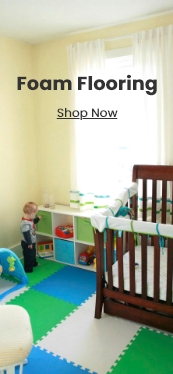

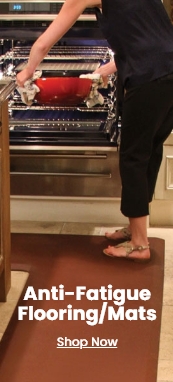

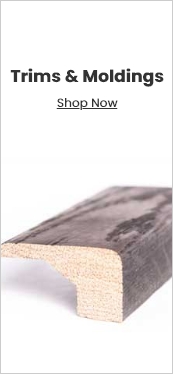


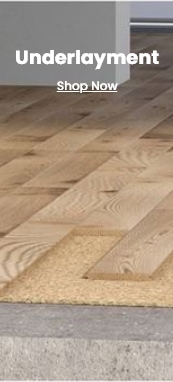

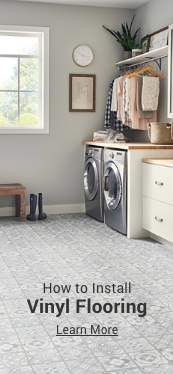
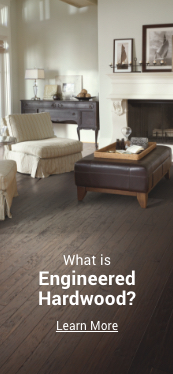
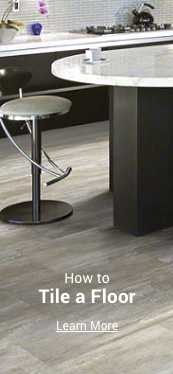
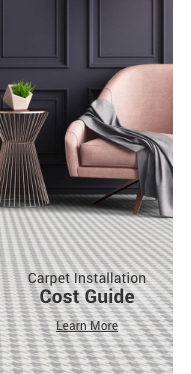
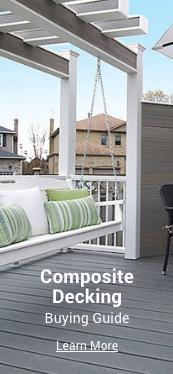


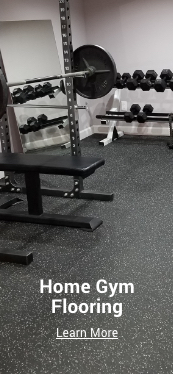
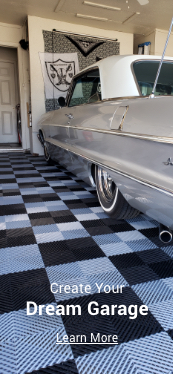
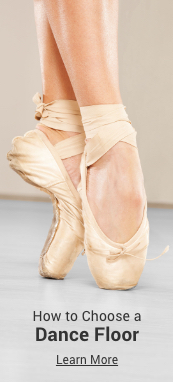
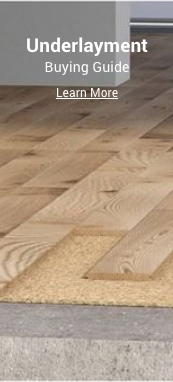

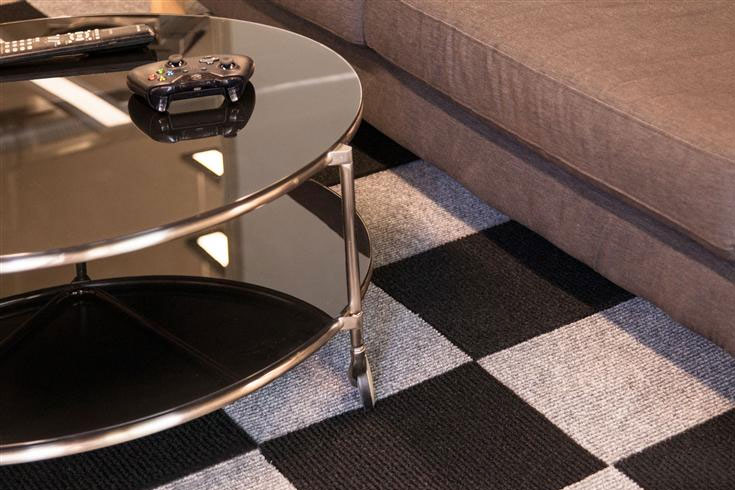
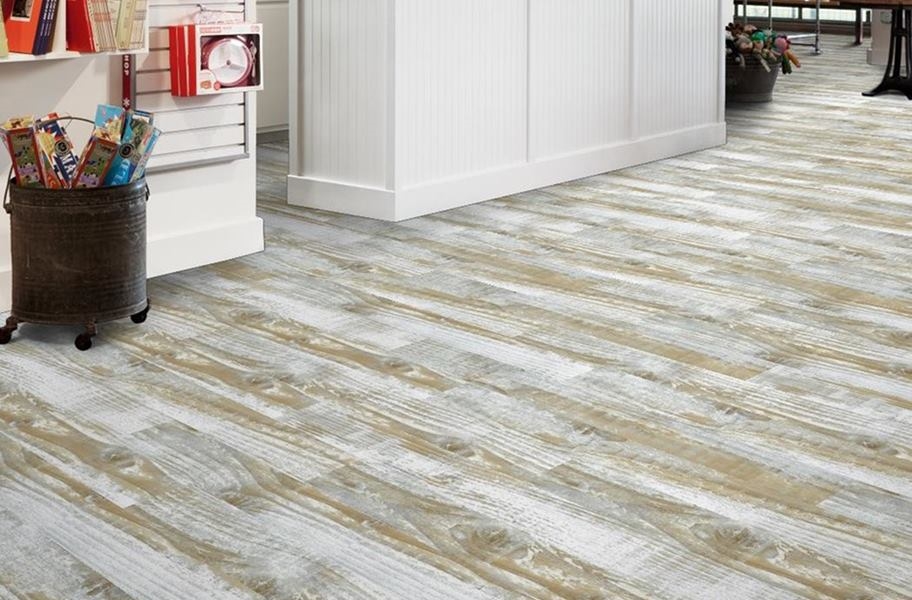
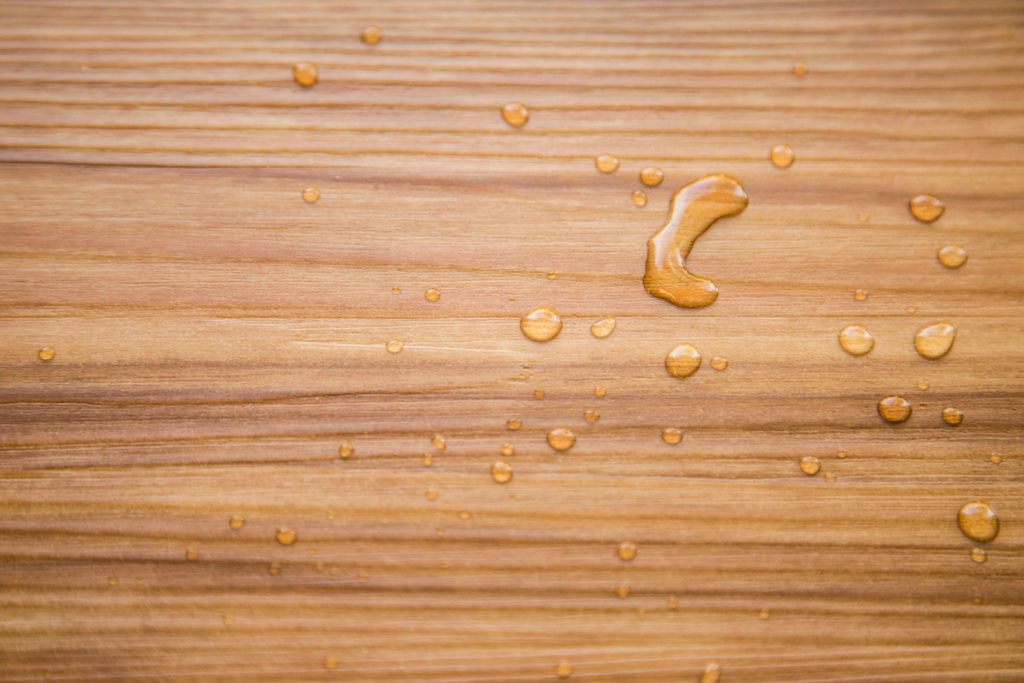
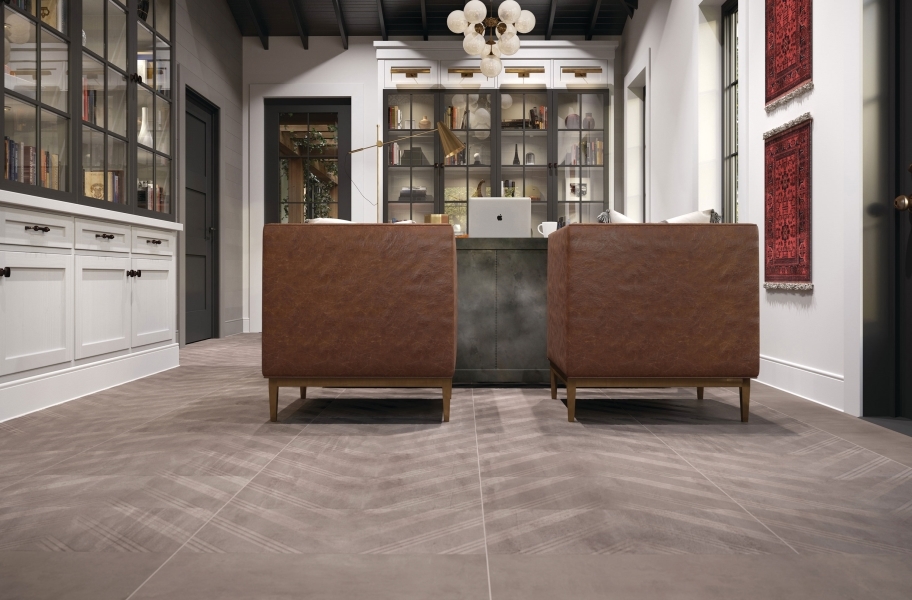

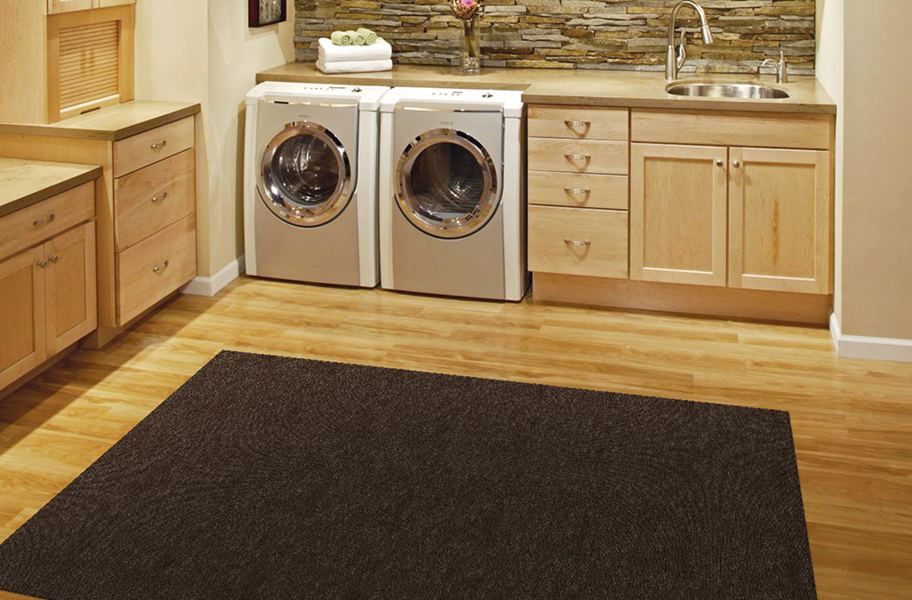
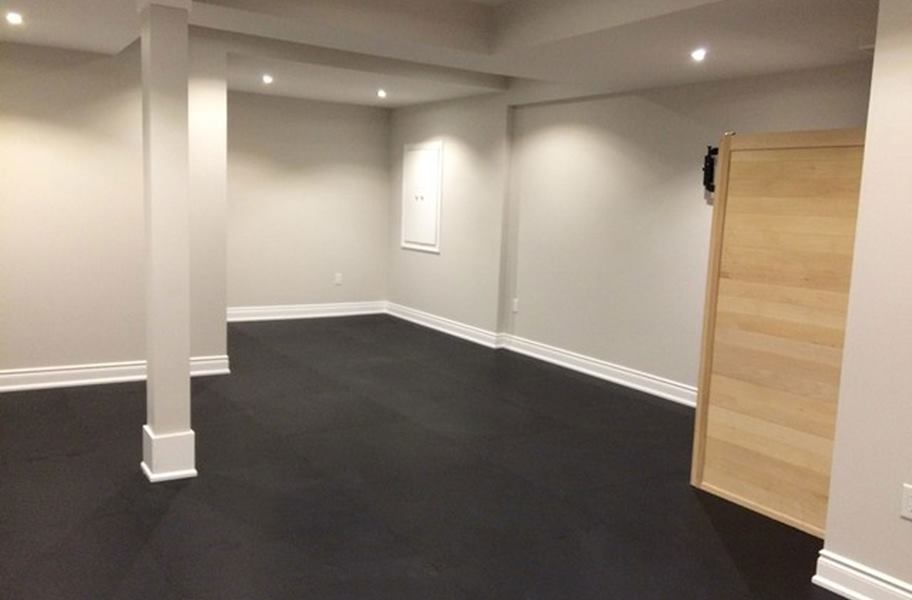
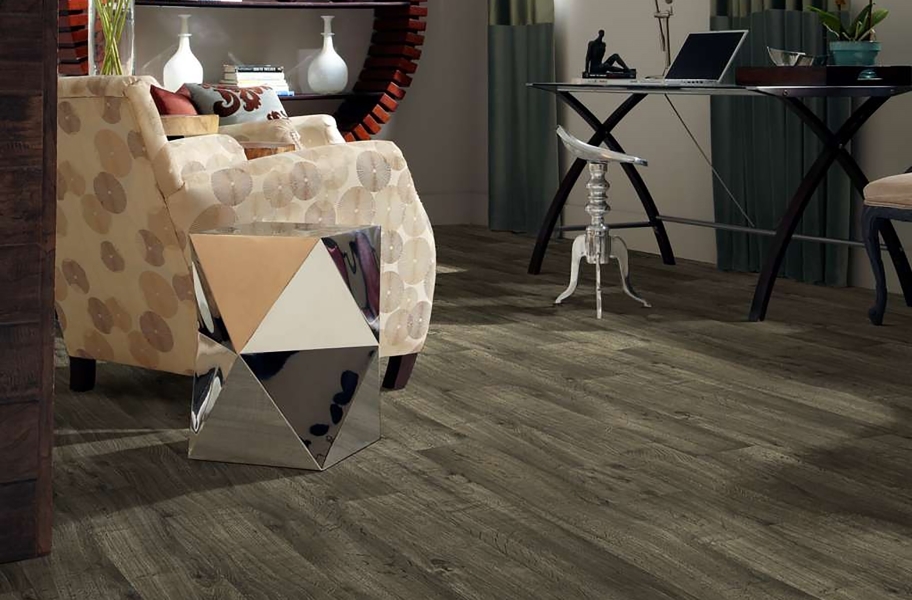
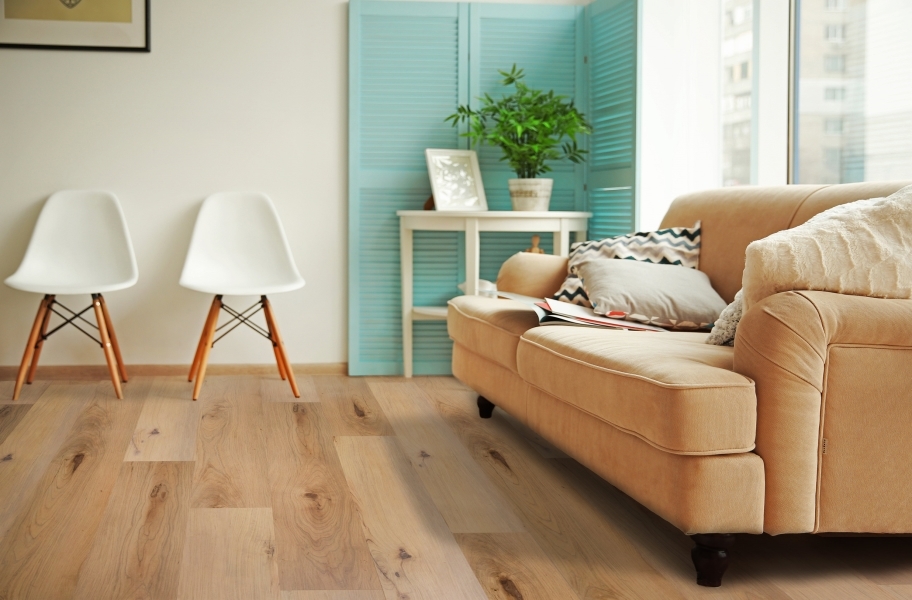
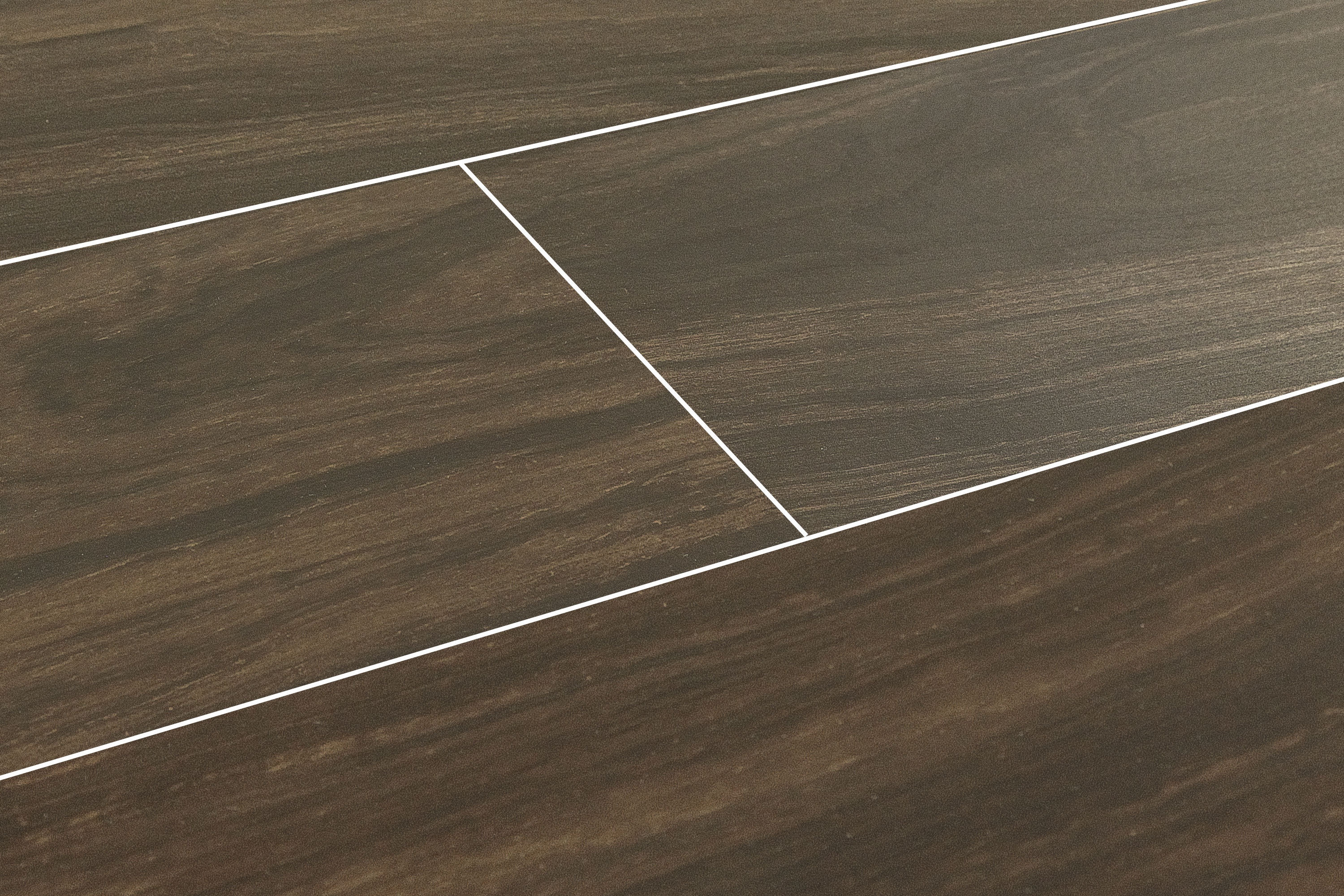

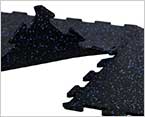



Hey ASHLEY DEZEEUW great post. I really appreciate your detailed guide on Best basement flooring options.
I loved this post.
Thank you for sharing the knowledge.
Keep up your great work. will be looking for more posts from you.
Hey Ashley! Loved the article! Really great information
Hey! Loved the post. Thanks for all the great tips!